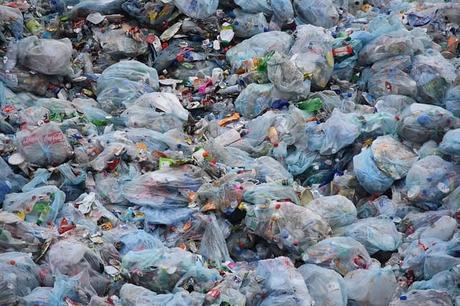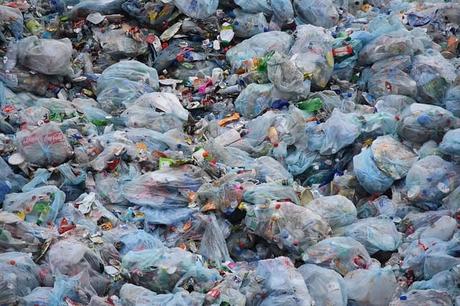Malaysia should not be more used as a prime dumping ground for unrecyclable plastic, Italy told all the countries. An investigation exposed the environmental and health implications of Malaysia, which is being used as plastics dumping ground by rich countries worldwide. The Italian government has been urged to end the illegal plastic waste export to that country.
Since China, previously the biggest importer in the world, imposed a ban in January, the imports of plastic waste from wealthy countries have increased dramatically in Malaysia. After Germany, demand for plastic is the second-highest in the EU, and it is the sixth-largest exporter of plastic waste to Malaysia.

As per the EU law, member states can export only recyclable plastic waste to non-EU countries, and that recycling company must follow the environmental and technical standards required for treatment facilities in Europe.
However, due to relaxed controls at ports, a vast amount of contaminated plastic that is hard-to-recycle is being shipped out of Europe and ending up in illegal factories.
Greenpeace, Italy, conducted an investigation by a team of journalists. Italy found out of the 2,880 tonnes of plastic waste is exported to Malaysia between January and September last year, almost half was received by companies operating illegally. Hundreds of tonnes of that waste piled up in landfills or burned at illegal factories as those firms cannot deal with contaminated and unrecyclable plastic.
“The [Italian] government cannot pretend that nothing is happening illegally – it must intervene,” Giuseppe Ungherese, who leads Greenpeace Italy’s pollution campaign, told the Guardian.
“We know that only a small number of containers leaving Italian ports are properly checked. A civilised country cannot close its eyes and dump the problem on a less developed nation – it’s like cleaning the house but hiding the dust under the carpet.”
The undercover investigation of factories that were outside the 64 companies listed as having permits to recycle plastic waste by Malaysian authorities found the evidence of illegally stored plastic that includes packaging produced by Italian companies, workers living inside factories, and plastic being burned.
Tests carried out on water and soil samples near to the mounds of discarded plastic. It showed an alarming level of contamination. Doctors also said about the rise in respiratory illnesses in villages hosting illegal factories.
As YB Tuan Ng Sze Han, a politician in the Malaysian state of Selangor, told Greenpeace, the contents of shipments arriving in the country hardly matched to what had been declared at customs.
“Only about 20 or 30% can be recycled,” he said. “The rest has to be discarded, which causes enormous problems and pollution. Most westerners are unaware of this. They think their countries are doing an excellent job of recycling; too bad it’s not at all like that.”
In the absence of the recycling procedures in place, Italy cannot deal with the plastic the country produces, and so relies on exports similar to other significant European countries.
“We use too much and get rid of the problem by sending it to less developed countries. They only take it because of the economic advantage,” said Pierdavide Pasotti, one of the Greenpeace journalists who worked on the investigation.
Malaysia’s plastics processing industry is worth an estimated £650m. Zuraida Kamaruddin, a Malaysian minister with responsibility for the management of plastic material, told Greenpeace: “If we don’t try to take economic advantage of it, somebody else will.”
For restricting shipments of unrecyclable plastic to poorer countries, almost every country in the world has agreed to a deal as part of an amendment to the Basel convention announced last May by the United Nations.
The exporting countries will have to obtain consent from the governments of countries receiving contaminated, mixed, or unrecyclable plastic waste from January 2021.
Although Malaysia does not have the legislative tools to ban imports, last year, it did begin a crackdown by closing down 140 illegal recycling factories and returning 150 containers full of plastic waste to 13 countries, including the UK, France, the US, and Canada.
Since Malaysia began its crackdown, the number of brokers, mainly in Hong Kong, organizing shipments has been increased, the Greenpeace investigation revealed.
“They are simply doing the paperwork,” said Pasotti. “The shipment gets legitimately brokered through Hong Kong while the container from Italy goes straight to Malaysia. It could be that the Italian exporter, aware of the crackdown in Malaysia, is transferring the risk.”
Ultimately producers of plastic waste are responsible for where it ends up, and they are legally safe so long they receive paperwork certifying that the plastic waste has been recycled.
Meanwhile, where governments know that the system does not meet legal standards, it has the power to impose bans on exports to countries.
Greenpeace has submitted its findings to Italian prosecutors. Paola Ficco, an environmental lawyer, said if a case emerges, then everybody found involved in the illegal plastic trafficking could face severe penalties.


